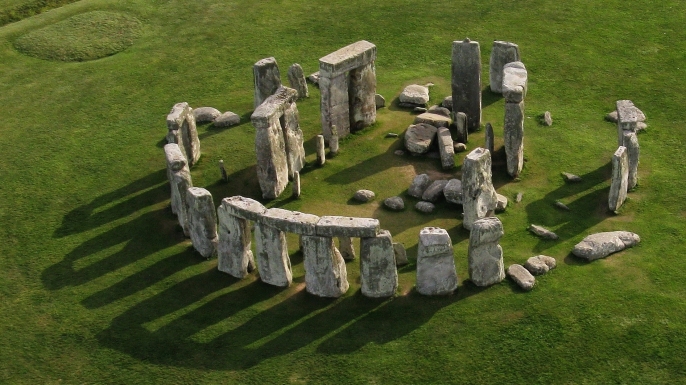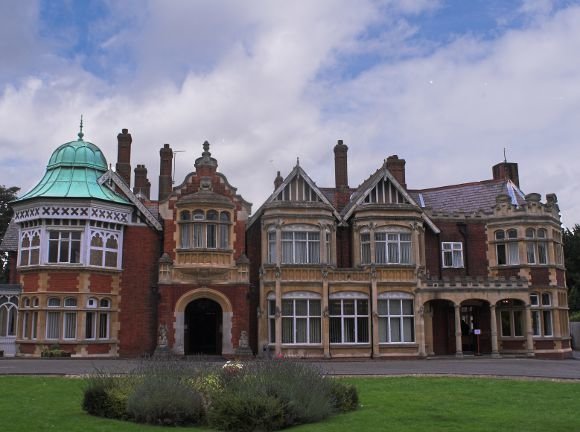About Time
 Sunday, September 13, 2009 at 6:51PM
Sunday, September 13, 2009 at 6:51PM 
“A computer would deserve to be called intelligent if it could deceive a human into believing that it was human.” -- ????? (answer below)
"In ancient times, hundreds of years before the dawn of history, an ancient race of people... the Druids. No one knows who they were or what they were doing..." -- Nigel Tuftnel
One of the really fortunate things I had the ability to do during my career is a lot of business in the UK. Over the years I've made more than a dozen trips there, and save for horrid, inedible breakfast food I've always had great trips over there.
The UK isn't a trivial get from Denver, and from the Bay Area the jet lag is even more lagging. So, having made the investment in getting there, I'd often delay my return into the following weekend to see some of the legacy of humanity with my own eyes. (Note: the clip that follows is, at best, a very different part of that legacy).
I've always loved Stonehenge (even before the Spinal Tap reduced the monoliths to 18" scale) and a few years back I drove out to the Salisbury Plain to see the monument. It is a beautiful and remarkable thing to see -- the monoliths are an elegant monument to the wonder and mystery of human learning. My belief has always been that these were ancient computing devices -- part calendar, part star-tracker. Their utility is lost to us, but had to have been remarkable to people of that age.
Stonehenge, though, isn't the only remarkable architecture I visited on a trip to Britain:

You might not recognize the monument above unless you've been there. Bletchley Park is to architecture what blood pudding is to food, but I made a trip up there two years ago, and it is the Stonehenge of our era. Some of the most remarkable work in modern history was performed there during World War II -- work so important and so secret that it was kept secret until the 1970s.
Not anymore, though. This week, in a remarkable turn of events, British Prime Minister Gordon Brown apologized to Alan Turing -- the issuer of the leading quotation above, and the father of modern computer science.
"It is no exaggeration to say that, without his outstanding contribution, the history of World War Two could well have been very different. He truly was one of those individuals we can point to whose unique contribution helped to turn the tide of war. The debt of gratitude he is owed makes it all the more horrifying, therefore, that he was treated so inhumanely."
In his work at Bletchley, Turing basically created the first modern working computer, and wrote the first working computer program -- all as part of a codebreaking effort that turned the tide of the war:
Alan Turing -- Computer Scientist, War Hero.
About time...

 John Repko | Comments Off |
John Repko | Comments Off |  Bletchley,
Bletchley,  Spinal Tap,
Spinal Tap,  Stonehenge,
Stonehenge,  Turing,
Turing,  computability
computability 
